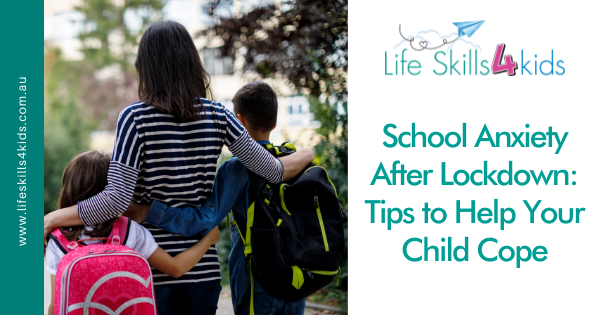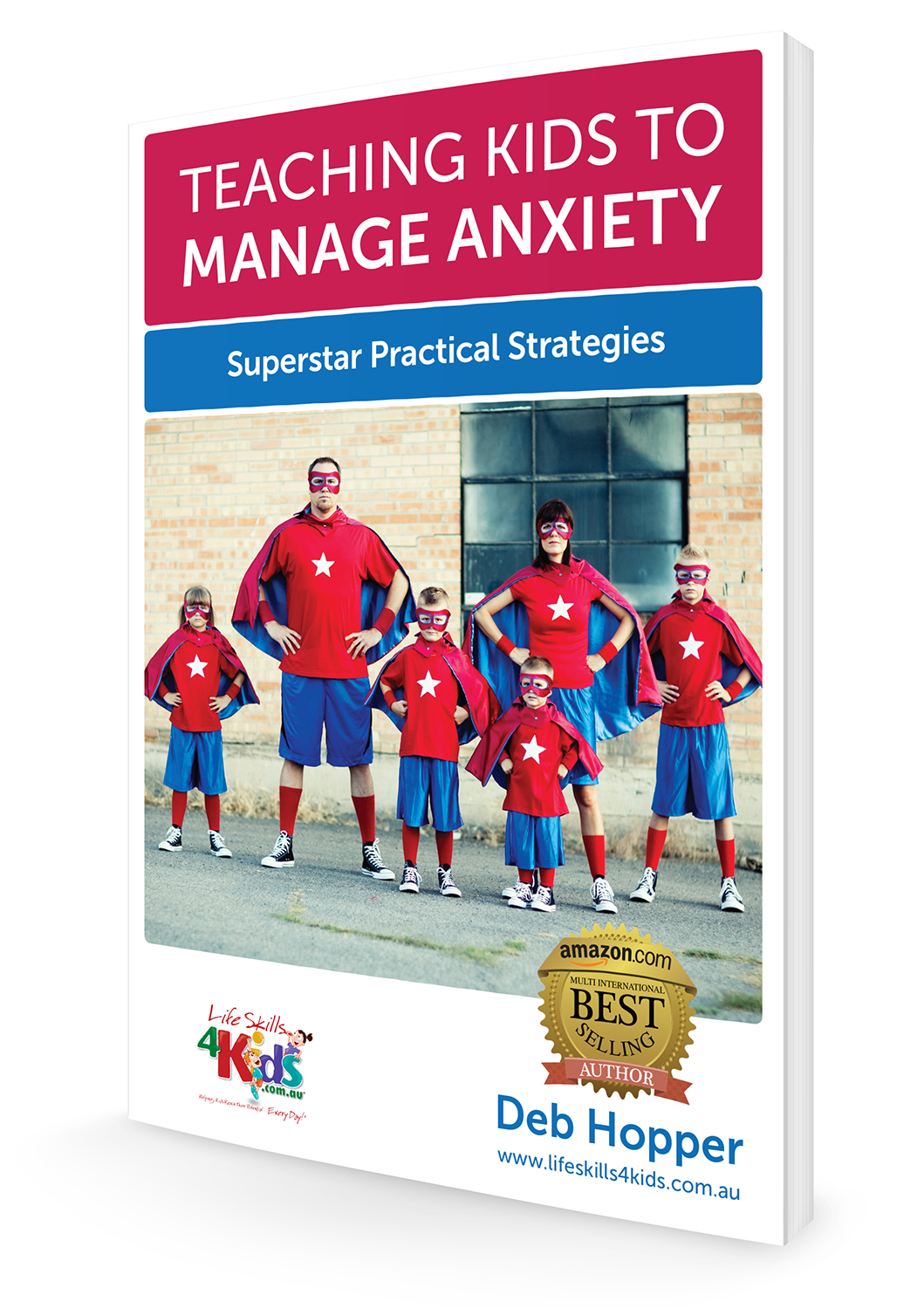Returning to school can be a stressful experience for children at the best of times, but going back to school after extended lockdowns can cause extra anxiety. Although many children and parents are looking forward to the return of school, managing the anxiety that may result is also important.
After an extended period of doing school from home, stepping back into the school routine may be exciting for many, but children who struggle with transitions often take longer to process the changes. For children with an autism spectrum disorder or those who are generally anxious, this may be a challenging time for them and their parents.
Let’s talk about 7 tips to prepare for a smooth transition after lockdowns:
Create a Visual Calendar
Whether your lockdown has been a few days, weeks or months, the re-entry transition to school can start as soon as you know the date. Communicating the passage of time and when school will be returning with your child is important. These tips and other coping exercises for anxiety will make your child’s return to school easier.
Create a whiteboard or calendar and place it in the house where everyone can see it. Mark today’s date and mark the date for back to school with a symbol, clipart image, or a photo of your child’s school on the date.
Kids love to see things visually and by helping them create a calendar of what’s coming up,
you can help them to feel calmer and less anxious.
Normal School Routines Help School Anxiety
As soon as you can, or at least a week before school starts, reinstate the “normal school routine”. This is especially important for waking and bedtimes. Recalibrating your child’s circadian rhythms is so important when it comes to having happier kids who can adjust to routines and changes.
During lockdowns, because we don’t have to get up at certain times, families often change their waking and bedtime routines. Think back to what bedtime and waking times worked for you for the school routine before lockdown, and gradually work your way back to those same routines, or go cold turkey… whatever works for you!
As always recommended, reduce the use of screen time and blue light for 2 hours before bedtime to encourage natural melatonin production, and create a regular and safe bedtime routine. Including a bath is helpful if you can, to assist their bodies to wind down.
Tips to Manage Your Own Mental Health
The lockdowns and Covid have placed a lot of mental stress on parents. It’s not surprising that so many people are suffering from anxiety and depression.
So it’s important to care for your own mental health, because whatever you’re going through also impacts the rest of the family.
Exercise
Exercise is a great way to get a dose of feel-good endorphins, especially if you can get out into the fresh air and sunshine. The benefits can last for hours and provide a mood lift when you’re feeling anxious or overwhelmed.
Practice Mindfulness
There are many ways to practice mindfulness, the art of relaxing your mind. You can simply sit and do nothing for ten minutes while you concentrate on slowing your mind down. Take deep breaths while you do this to get your body in sync and slow
down your heart rate. Pay attention to how you feel instead of noticing the outside world.
You can also listen to relaxing background music, spend some time at a hobby you find relaxing, or spend some quiet time out in nature. Your mind needs rest as much as your body does, and mindfulness helps to calm anxiety.
Avoid Unnecessary Stress
There are many stressors we can’t avoid, but we can also make deliberate choices to eliminate some of them. Social media can be stressful, so if you find that it increases your anxiety, limit the time you spend there. Likewise, some people cause stress, so limit your time with them. Look for ways you can reduce stress by limiting or eliminating its source.
Stay Calm and Reassuring
Going back to school and living with Covid is a new source of anxiety to navigate for both parents and children. As a parent, you might be quite anxious about the risk of your child contracting the virus. This is a natural response, so give yourself some grace. It’s to be expected.
Be mindful though, that children seem to be super aware of our anxieties. Monitor how much news you watch with and without your child. Keep up to date, yes, but avoid excessive exposure to news that may create feelings of depression or anxiety in yourself or your child. Instead, focus on your family’s needs and on self-care.
A child with school anxiety is usually extremely aware of others who are projecting anxiety whether or not they try to hide it, so it’s important to stay calm and be reassuring. It’s not easy to do when you’re anxious yourself, so taking care of yourself is crucial.
Understanding School Anxiety: Watch for the Signs
Be mindful of the ways that children reach out for help and might show their anxiety. There are many “negative behaviours” that children might show which are clues that they have anxiety about returning to school. With Covid, children are aware of what’s happening and can get concerned that they or their parents might get sick and pass away. These are very real concerns and deserve attention and empathy.
It’s important to find out what’s worrying your child and reassure them that what they’re experiencing is normal. Give them your full attention and don’t allow your own emotions to affect the conversation. Make a regular “debriefing” time that they can come to you and talk to you about what’s on their mind. Bedtime often works well with older children or teens, while younger children might respond better earlier in the evening, at mealtimes, or at bath times.
Some signs of anxiety about returning to school might include children saying things such as “please don’t make me”, or “I don’t want to go to school”, “I want to stay home”, “I don’t want to, I’m tired”, “I feel sick”, or pulling their hair (twirling or pulling hair out).
School anxiety in teens may look slightly different from the signs children display but it can include excessive worry, difficulty sleeping, fear of facing new or unfamiliar situations, restlessness, fatigue, and aches and pains. See here for more information on signs of anxiety.
Afternoon Meltdowns: A Sign of School Anxiety
I know this is hard to hear, but afternoons are going to be tough as your child transitionsback to school. In normal times, many children keep their emotions in check while at school,holding it all together until they get home. Once in the safety of home, these underlyinganxious emotions come tumbling out, sometimes as a meltdown.
In a pandemic, this is going to be exacerbated. This is totally normal and OK.
Expect it … do some self-care for yourself during the day, even if it’s just taking 10 minutesto ground yourself with a quiet cup of tea or a stretch before they get home.
Be there for your children. Try and schedule your day so you can be available physically and emotionally for the evening routine.
Get outside in the sunshine and fresh air with your children. Walking and talking is a great
way to debrief after a day of transition back to school.
Focus on the Positives.
Even though the world can be a challenging place to live, one of the best things you can do to defeat fear and anxiety is to focus on the positives. Make it a habit to intentionally look for the positives in every situation and teach your kids to do the same.
Even the most reluctant student can usually find something positive about going to school.It might be friends, a teacher they like, or a subject they enjoy. Encourage them to focus on the things they like about school rather than the things that make them anxious. It might take some persistence to overcome negative or fearful assumptions about school but it will help your child build resilience.
You’ve got this. Trust your parent instinct, choose one of these suggestions to start with, and be there for your child during this challenging yet rewarding time. Together you can manage back-to-school anxiety after the end of the lockdown.
For more updates, follow us on our social media channels. We are on Facebook, Twitter, Linkedin, and Instagram!
Get your own copy!
Kids today are growing up in a fast-paced world where information and opportunity overload can be overwhelming.
Based on many years of clinical experience as an Occupational Therapist, Deb Hopper has been using her Just Right Kids® Model to teach children to communicate and manage their stress and anxiety by:
- Identifying their “body speed”,
- Understanding their stress triggers, and
- Implementing simple strategies to reduce anxiety and stress.


